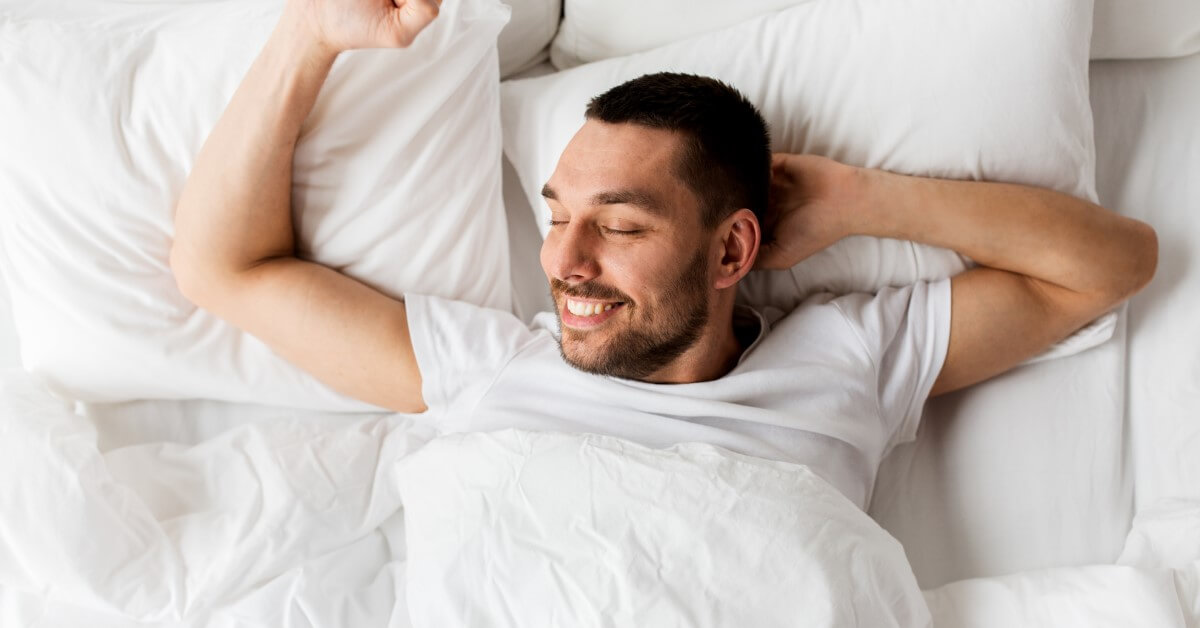
What are Hormones? | How Do Your Hormones Influence How You Feel? |
How Do I Achieve Hormonal Balance? | What’s the Takeaway?
Overview
Hormones. Different things come to peoples’ minds when they hear that word. And most of us don’t fully appreciate just how important hormones are in our lives.
Every human has an endocrine system that acts as the regulating arm of our control center – our brain. It’s a system of glands that produces over 60+ hormones regulating nearly every cell, organ, and bodily function.
We are all guided by hormones in one fashion or another, so if you want to sleep better, be fitter, or feel better – it’s time to look at how profoundly hormones affect us.
What are Hormones?
In essence, hormones are chemical messengers within the body. Traveling around in our bloodstream and distributed within our organs and tissues, they regulate many of the body’s functions, such as growth and development, metabolism, electrolyte balances, and reproduction.[1]
Numerous glands throughout the body produce hormones. This system of glands is called the endocrine system. This system includes the pituitary, thyroid, parathyroid, thymus, and adrenal glands.[1] The pancreas, ovaries, and testes are other glands that function similarly.[1]
How Do Your Hormones Influence How You Feel?
Many factors go into mood regulation. Environmental components such as weather and outside stressors play into this significantly. However, hormones can and do play a significant role in this crucial aspect of overall health.
More specifically, it is the activity of the thyroid gland that is vital to how we feel. If thyroid hormones are low, it is a proven path to low mood and even clinical depression.[2] If there is an overproduction of thyroid hormones, it can induce irritability and anxiety.[3]
For women, the hormones estrogen and progesterone have significant impacts on mood. For example, pregnancy and delivery can dramatically increase estrogen and progesterone levels, possibly increasing depression.[4]
Postmenopausal women can experience frequent mood changes that come with the natural alteration in hormonal balance.[5]
For men, the hormone testosterone plays a pivotal role in mood, behavior, and self-perception, so dropping testosterone levels as a normal part of aging can also cause low energy and depression.[6]
How Do I Achieve Hormonal Balance?
Fortunately, there are active ways that we can use to maintain hormonal balance naturally (outside of natural hormonal changes that we have no control over – such as the age-related hormonal changes mentioned earlier).
Sleep: You can regulate your hormone levels significantly with enough quality sleep,[7] defined as 7-9 hours of continuous shut-eye for adults every night. And while on the topic of sleep, make sure you avoid artificial light (even from electronics such as tablets and smartphones) before bedtime, as this can interfere with the production of the sleep hormone melatonin.[8]
Diet: Fiber is an excellent hormone balancer – especially one type called oligofructose, found in onions, garlic, artichokes, oats, and barley.[9] Healthy fats such as olive and coconut oil stimulate the production of appetite and digestion-controlling hormones.[10] And while on the subject of fats – fatty fish has been found to induce the production of hormones that balance mood and has even shown promise in developing treatments for mood disorders such as depression.[11] Lastly, try to avoid sugar as much as possible, including honey. Something many people don’t view as sugar as it causes the same type of insulin resistance that causes metabolic disease.[12]
Exercise: Regular physical activity is incredibly beneficial for many aspects of health, but did you know that it also profoundly affects hormonal balance? Hormones that regulate appetite, as well as insulin, are stimulated by exercise.[13] Be careful not to work out too close to bedtime, as it can interfere with melatonin production. Give yourself at least 4 hours between physical activities such as formal exercise or brisk walks/jogs and sleep time to be safe.
What’s the Takeaway?
You could say that hormones control our lives. It would certainly not be a stretch. However, we can also influence them by adopting certain lifestyle habits to ensure that hormonal functions keep humming along to support our health and keep us feeling great!
References:
- Hiller-Sturmhöfel, S., & Bartke, A. (1998). The endocrine system: an overview. Alcohol health and research world, 22(3), 153–164.
- Hage, M. P., & Azar, S. T. (2012). The Link between Thyroid Function and Depression. Journal of thyroid research, 2012, 590648. https://doi.org/10.1155/2012/590648
- Kathol, R. G., & Delahunt, J. W. (1986). The relationship of anxiety and depression to symptoms of hyperthyroidism using operational criteria. General hospital psychiatry, 8(1), 23–28. https://doi.org/10.1016/0163-8343(86)90060-5
- Steiner, M., Dunn, E., & Born, L. (2003). Hormones and mood: from menarche to menopause and beyond. Journal of affective disorders, 74(1), 67–83. https://doi.org/10.1016/s0165-0327(02)00432-9
- Dalal, P. K., & Agarwal, M. (2015). Postmenopausal syndrome. Indian journal of psychiatry, 57(Suppl 2), S222–S232. https://doi.org/10.4103/0019-5545.161483
- Zitzmann M. (2020). Testosterone, mood, behaviour and quality of life. Andrology, 8(6), 1598–1605. https://doi.org/10.1111/andr.12867
- Kim, T. W., Jeong, J. H., & Hong, S. C. (2015). The impact of sleep and circadian disturbance on hormones and metabolism. International journal of endocrinology, 2015, 591729. https://doi.org/10.1155/2015/591729
- Cho, Y., Ryu, S. H., Lee, B. R., Kim, K. H., Lee, E., & Choi, J. (2015). Effects of artificial light at night on human health: A literature review of observational and experimental studies applied to exposure assessment. Chronobiology international, 32(9), 1294–1310. https://doi.org/10.3109/07420528.2015.1073158
- Daud, N. M., Ismail, N. A., Thomas, E. L., Fitzpatrick, J. A., Bell, J. D., Swann, J. R., Costabile, A., Childs, C. E., Pedersen, C., Goldstone, A. P., & Frost, G. S. (2014). The impact of oligofructose on stimulation of gut hormones, appetite regulation and adiposity. Obesity (Silver Spring, Md.), 22(6), 1430–1438. https://doi.org/10.1002/oby.20754
- Mandøe, M. J., Hansen, K. B., Hartmann, B., Rehfeld, J. F., Holst, J. J., & Hansen, H. S. (2015). The 2-monoacylglycerol moiety of dietary fat appears to be responsible for the fat-induced release of GLP-1 in humans. The American journal of clinical nutrition, 102(3), 548–555. https://doi.org/10.3945/ajcn.115.106799
- Larrieu, T., & Layé, S. (2018). Food for Mood: Relevance of Nutritional Omega-3 Fatty Acids for Depression and Anxiety. Frontiers in physiology, 9, 1047. https://doi.org/10.3389/fphys.2018.01047
- Stanhope K. L. (2016). Sugar consumption, metabolic disease and obesity: The state of the controversy. Critical reviews in clinical laboratory sciences, 53(1), 52–67. https://doi.org/10.3109/10408363.2015.1084990
- Bird, S. R., & Hawley, J. A. (2017). Update on the effects of physical activity on insulin sensitivity in humans. BMJ open sport & exercise medicine, 2(1), e000143. https://doi.org/10.1136/bmjsem-2016-000143


